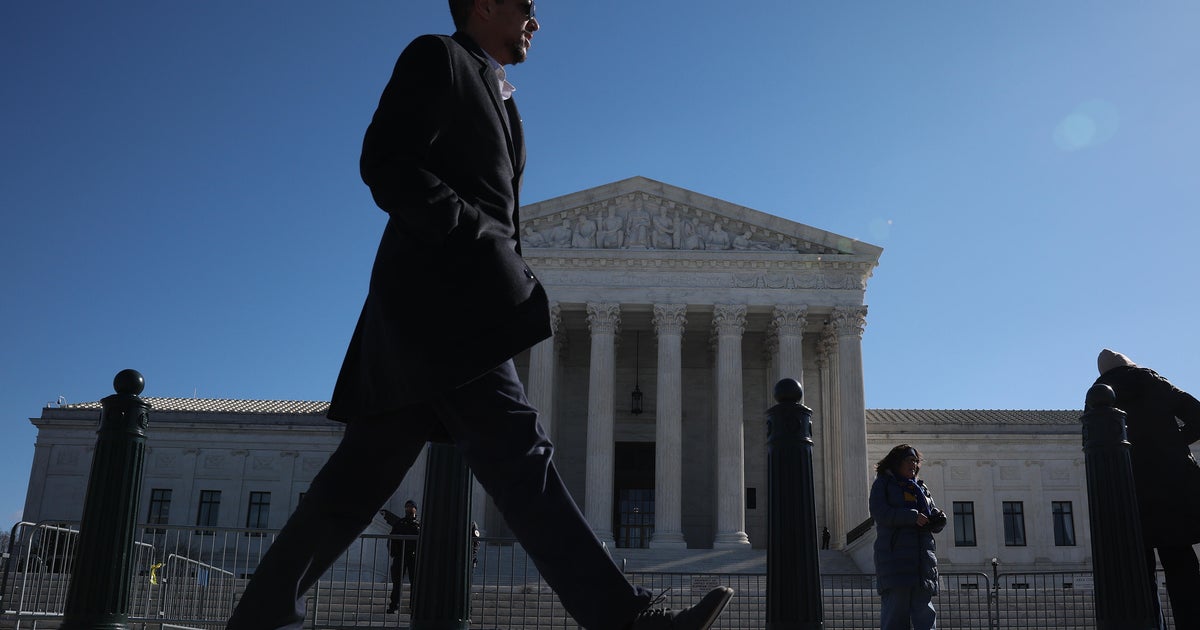Supreme Court reinstates Alabama's prohibition on curbside voting
Washington — The Supreme Court late Wednesday allowed Alabama to reinstate its ban on curbside voting, approving a request from the Alabama secretary of state to lift a lower court order that allowed counties in the state to adopt the practice for voters who are at risk of serious illness from the coronavirus pandemic.
The high court voted 5-3 along ideological lines to halt a lower court's order that blocked the ban on curbside voting. Justice Sonia Sotomayor, joined by Justices Elena Kagan and Stephen Breyer, dissented from the grant of the stay, citing the severity of the coronavirus pandemic and the risk the virus poses to those with chronic health conditions.
"We should not substitute the district court's reasonable, record-based findings of fact with our own intuitions about the risks of traditional in-person voting during this pandemic or the ability of willing local officials to implement adequate curbside voting procedures," Sotomayor said in her dissent. The majority did not issue an opinion.
Alabama's secretary of state prohibited counties from offering curbside voting, but in May, at-risk voters in the state and several organizations challenged the ban. The federal district court found that the prohibition on curbside voting violated the Americans with Disabilities Act and said a policy allowing counties to adopt the service was a reasonable accommodation. The 11th U.S. Circuit Court of Appeals upheld the district court's block on the ban.
But the secretary of state asked the Supreme Court to allow Alabama to reinstate the ban.
In her dissent, Sotomayor cited the experience of Howard Porter, one of the plaintiffs in the case who has asthma and Parkinson's disease. Porter, a Black man, told the district court many of his ancestors died to vote, and said while he doesn't mind dying to vote, "we're past that time."
"Election officials in at least Montgomery and Jefferson counties agree," she wrote. "They are ready and willing to help vulnerable voters like Mr. Porter cast their ballots without unnecessarily risking infection from a deadly virus. This court should not stand in their way."
Many states changed their voting policies during the coronavirus pandemic to make it easier for voters to cast their ballots by mail and have sought to alter their procedures to prepare for what is expected to be an influx of mail-in ballots for the November general election. But the new policies have been challenged in state and federal courts across the nation, and the Supreme Court in several instances have been asked to weigh in.
On Monday, the high court split 4-4 on a request from Pennsylvania Republicans to block a ruling from the state supreme court allowing mail-in ballots to be accepted up to three days after Election Day. It takes five votes to grant a stay, and a vote from an evenly divided court means the lower court's ruling stands. The Pennsylvania Supreme Court ruled in September late-arriving ballots can be counted as long as they are postmarked by Election Day.



